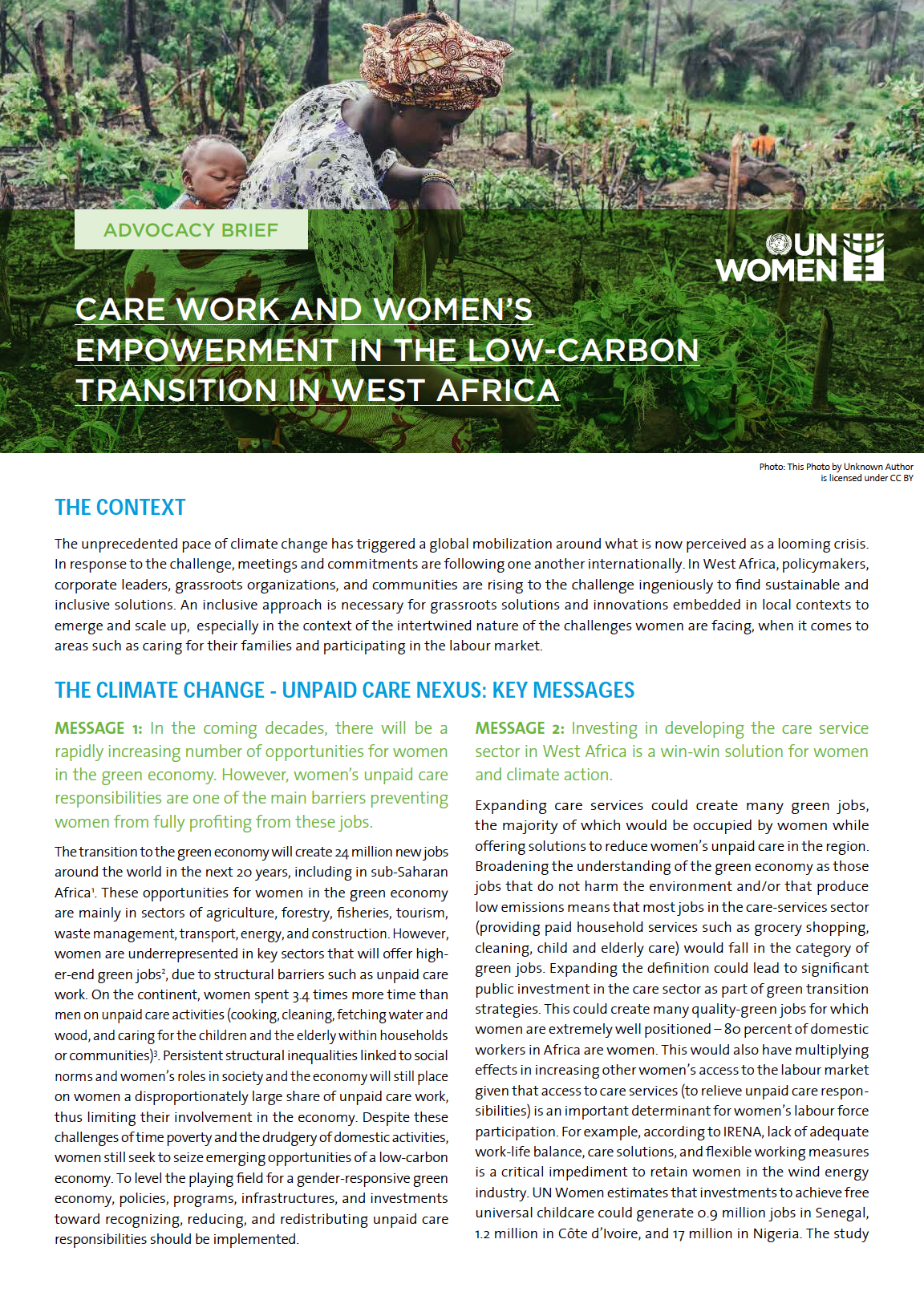
CARE WORK AND WOMEN’S EMPOWERMENT IN THE LOW-CARBON TRANSITION IN WEST AFRICA

The unprecedented pace of climate change has triggered a global mobilization around what is now perceived as a looming crisis. In West Africa, policymakers, corporate leaders, grassroots organizations, and communities are rising to the challenge ingeniously to find sustainable and inclusive solutions.
An inclusive approach is necessary for grassroots solutions and innovations embedded in local contexts to emerge and scale up, especially in the context of the intertwined nature of the challenges women are facing. In the coming decades, there will be a rapidly increasing number of opportunities for women in the green economy. However, women’s unpaid care responsibilities are one of the main barriers preventing women from fully profiting from these jobs. Moreover, we see that grassroots women are at the forefront of the fight against climate change.
However, climate change is only aggravating women’s time spent on unpaid care work. Timesaving, energy-efficient technology and infrastructure is hence essential to help women realise their full contribution to climate change mitigation and adaptation, and reduce their unpaid care burden. Therefore, this brief calls for action on adopting appropriate public policies to ensure that women get an equitable share of green jobs; balancing men’s and women’s responsibilities for care; supporting private sector development in the care sector to scale-up promising solutions and increasing access to time-saving equipment and other labour-saving solutions, especially for women at the bottom of the pyramid.